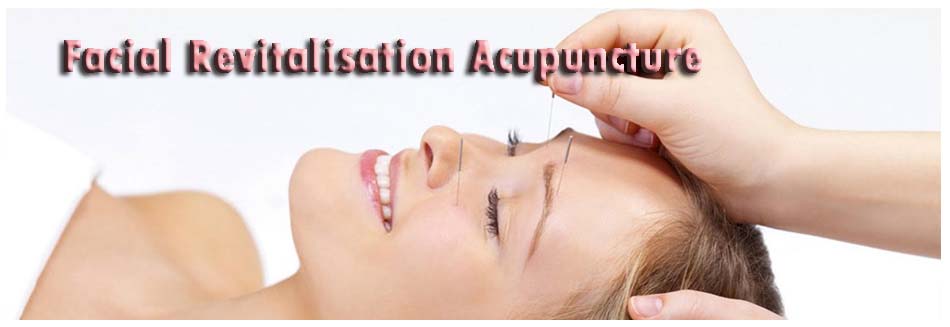Services / Acupuncture Treatment
Acupuncture is among the oldest healing practices in the world. It has been practiced in China and other Asian countries for thousands of years and has provided effective relief for millions of people throughout the ages. It continues to be used extensively in clinical practice in China. The long-established tradition of acupuncture in China means that patients there generally have more awareness of this type of treatment and what's involved.
At Pain Management Clinic ,we provide not only acupuncture treatment, massage therapy, also we offer natural herb formula for many medical conditions.
The acupuncture services with many different procedure as :
- Acupuncture
- Acupressure
- Acu-Magnets / Ear Pellets
- Cupping / Heat Therapy
- Electronic Acupuncture
- Facial Revitalisation
- Moxabustion
Acupuncture Treatment
or dull aching sensation which lasts only for a few moments. Most patients are obviously a little anxious before their first session but are pleasantly surprised at how painless it is and how relaxed they feel after.
What Is Acupuncture ?
Over the past 5,000 years acupuncture has evolved into a complete medical system that can diagnose, treat, and prevent illness. It is a safe, effective, and painless way to treat a wide variety of conditions. An acupuncturist will place fine, sterile needles at specific acupoints on your body. This quick and easy insertion stimulates your body's energy, called Qi, and unblocks any obstruction of Qi, strengthens your body, helps you to heal from acute or chronic problems, and balances both body and mind. Needling these specific acupoints restores the proper balance and flow of Qi, while improving the overall function of your body and enhancing it's recuperative power and immunity. Acupuncture can help you obtain and enjoy health and well-being.
How Does Acupuncture Work ?
Acupuncture releases endorphins and enkephalins, norepinaphrine, and acetylcholine reducing pain and balancing the immune system. It also facilitates healing by reestablishing electrical conductivity between normal and injured tissues. Acupuncture regulates blood components including triglycerides, cholesterol and lipids.
Many studies in animals and humans have demonstrated that acupuncture can cause multiple biological responses. These responses can occur locally, i.e., at or close to the site of application, or at a distance, mediated mainly by sensory neurons to many structures within the central nervous system. This can lead to activation of pathways affecting various physiological systems in the brain as well as in the periphery. A focus of attention has been the role of endogenous opioids in acupuncture analgesia. Considerable evidence supports the claim that opioid peptides are released during acupuncture and that the analgesic effects of acupuncture are at least partially explained by their actions. That opioid antagonists such as naloxone reverse the analgesic effects of acupuncture further strengthens this hypothesis. Stimulation by acupuncture may also activate the hypothalamus and the pituitary gland, resulting in a broad spectrum of systemic effects. Alteration in the secretion of neurotransmitters and neurohormones and changes in the regulation of blood flow, both centrally and peripherally, have been documented. There is also evidence that there are alterations in immune functions produced by acupuncture. Which of these and other physiological changes mediate clinical effects is at present unclear.
What Conditions Has Acupuncture Treatment Been Found Helpful ?
Acupuncture as a therapeutic intervention is widely practiced in the United States. There have been many studies of its potential usefulness. However, promising results have emerged, for example, efficacy of acupuncture in adult post-operative and chemotherapy nausea and vomiting and in post-operative dental pain. There are other situations such as addiction, stroke rehabilitation, headache, menstrual cramps, tennis elbow, fibromyalgia, myofascial pain, osteoarthritis, low back pain, carpal tunnel syndrome, and asthma where acupuncture may be useful as an adjunct treatment or an acceptable alternative or be included in a comprehensive management program.
Findings from basic research have begun to elucidate the mechanisms of action of acupuncture, including the release of opioids and other peptides in the central nervous system and the periphery and changes in neuroendocrine function. Although much needs to be accomplished, the emergence of plausible mechanisms for the therapeutic effects of acupuncture is encouraging.
Does Acupuncture Hurt ?
Patients feel a mild, dull sensation at the site of each needle or may feel a vague numbness, heaviness or slight tingling.Some of Patients won’t even feel the needle at all. Some patients report feeling pleasant tingling or warming sensations on the body during the treatment. There may be some discomfort momentarily when the needle is inserted. We always ensure that the patient is comfortable during their treatment.
Acupuncture needles, unlike hypodermics, are ultra-fine and flexible, thereby permitting a nearly painless insertion. Acupuncturists attain a high level of skill in gently placing these tiny needles, and often the insertion is barely perceptible. After treatment some people are energized, while others feel very relaxed. Some points are more sensitive than others. Some patients are more sensitive than others.
Fear of acupuncture is mostly psychological. Through our many years of personal experience, we’ve discovered that 99% of our patients feel just fine with acupuncture needles. For those patients who are really afraid of needles, we usually just try one needle to see how the patient feels. Most of these patients are usually very surprised to find out that they are actually OK with needles.
Is Acupuncture Safe ?
Yes, acupuncture is safe. Licensed acupuncturists adhere to strict cleanliness standards from the Center for Disease Control and are trained and licensed in needle technique. Needles are sealed in sterile packaging and only used once. Used needles are disposed of safely in a biohazard container.
What If I’m Afraid Of Needles ?
Most people are afraid of needles. After an introductory discussion about acupuncture needles patients almost always feel relaxed and are no longer concerned with acupuncture needles.
If you find that you are a patient who is truly afraid of needles, don’t worry. We have many other procedures, or modalities, to use in acupuncture treatment, like cupping or acupressure. These modalities work as well as needles for most kinds of illnesses. We may also recommend that you take herbal products. So, your treatment can be needle-free.
Can Children Receive Acupuncture ?
Yes, children can receive acupuncture and often have excellent results with this treatment. However, in cases where the children are uneasy about the needles, a practitioner may choose to use an acupressure treatment (massage of the acupoints), auricular treatment (small seeds or tacks on acupoints in the ears), or stimulation of the acupuncture points with an electronic device that delivers safe, micro-current through the skin as opposed to acupuncture. Many children can be effectively treated with Chinese herbal medicines alone that provide a safe, effective and drug-free approach to health as well.
Why Should I Get Acupuncture During Pregnancy?
Pregnancy is an exciting and wonderful time. However, with the many physical and hormonal changes that occur, it can also be a time of discomfort. Many pregnant women suffer from fatigue, nausea, backache and other conditions that are considered a "normal" part of pregnancy. Acupuncture is a safe, gentle and effective way to address these complaints, especially since many Western medications can't be used during this time.
Regular acupuncture during pregnancy sets the foundation for a healthy mother and baby. In addition, women who receive acupuncture during pregnancy often have a shorter and easier birth experience than women who don't receive acupuncture. Several European studies concluded that women who received acupuncture once a week during the last month of pregnancy had significantly shorter labor than women who did not receive any acupuncture.
House calls are available for pregnant patients who are on full or partial bed rest. House calls are also available for postpartum treatments. Postpartum patients are welcome to bring their baby with them for office appointments.
What Conditions Can Been Treated During Pregnancy or Postpartum ?
Some of the conditions that acupuncture can treat are:
- nausea, vomiting, and hyperemesis gravidarum
- insomnia
- low energy
- anemia
- anxiety/depression
- constipation
- heartburn
- back pain and sciatica
- symphysis pubis pain
- carpal tunnel syndrome
- gestational diabetes
- high blood pressure (pre-eclampsia)
- PUPPs & other pregnancy-related skin conditions
- certain types of threatened miscarriage
- breech presentation
- posterior presentation
- pre-term labor
- delayed labor
- labor pain
- lactation problems
- postpartum depression
Is Acupuncture Safe During Pregnancy?
Yes. Prenatal acupuncture has been used for thousands of years to help patients support a healthy pregnancy and uncomplicated delivery. An Australian study conducted by Adelaide University in 2002 found that acupuncture during pregnancy had no adverse effects and was completely safe when done by a trained acupuncturist.
You may have heard that some acupuncture points are forbidden during pregnancy. This is true - certain points are to be avoided during pregnancy as they may stimulate uterine contractions. However, a practitioner trained l acupuncture, as weare, will know which points can safely be used and which should be avoided. Also, all pregnant patients are seen regularly throughout their pregnancy by an OB/Gyn or midwife, which allows us to be well informed of any complications or health issues.











